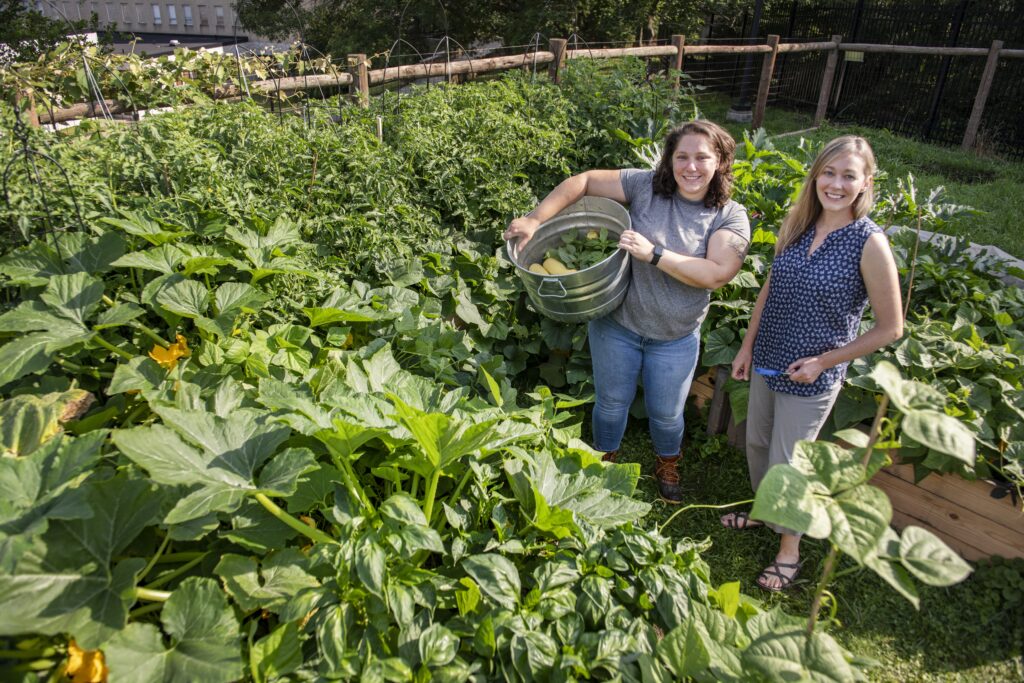WVU Today
Two West Virginia University biologists have spent their summer tending a garden that grew into more than a source for fresh vegetables —it was a backyard sanctuary for learning where students and faculty discovered how to plant seeds, prepare soils, monitor water and nutrient needs, manage pests and nurture the vegetation.
The Garden has also become a place to volunteer and to better understand the value of one of life’s most basic needs: food.
“I wish more people knew about this hidden gem,” said Nikki Byrne-Hoffman as she walked the perimeter of the 112-square-foot raised garden bed, occasionally stopping to peek under overgrown leaves to assess which hidden produce is ripe for the taking while in search of her favorite resident, the praying mantis.
Over the summer, she has joined her colleague most early mornings at the plot of land just below Evansdale’s iconic WVU water tower. They have sown and seeded intertwining patches of heirloom and grape tomatoes, cucumbers, zucchini, green beans, bell peppers, banana peppers, butternut squash, yellow squash and herbs.
The pair of Eberly College of Arts and Sciences Department of Biology academic specialists enjoyed making the garden part of their summer routine. But this small landscape of biodiversity goes beyond aesthetics and personal enjoyment.
Since its construction in late May, the garden has produced more than 800 pounds of seasonal fruits and vegetables that have been delivered to food pantries in Morgantown.
“While this little garden won’t end hunger for all, it does make a difference in our community. More importantly, it helps initiate conversations about food and hunger,” Byrne-Hoffman said.
With funding from the WVU Office of the Provost’s competitive Transform This! Challenge Grants, the WVU Campus Food Garden was installed to provide equitable access to fresh produce for those struggling with food insecurity. In doing so, it serves as a social equity model, helping to fulfill one of the strategic goals of the Transform This! Challenge and the collective vision for WVU’s future.
“We often forget that many WVU students, faculty and staff have to decide whether to buy books or pay for meals, support their kids’ medical bills or choose nourishing food options,” Byrne-Hoffman added. “We’re hopeful The Garden will crack open conversations about food insecurity and food justice while also supplying fresh, safe, heathy produce to local food-insecure populations.”

Thanks to collaborations with The Rack at WVU, Trinity Episcopalian Community Kitchen and First Presbyterian Church, regular donations are arranged so students and community members can grab their fresh goods to go or enjoy a farm-to-table experience.
Byrne-Hoffman has also launched the “Hungry Mondays” workshop series, which explores barriers to food access and considers solutions that may lead to lasting social and policy changes. Nonprofits, organizations, faith communities and local chefs discuss a range of topics, including harvesting events, food justice and equity, food advocacy, food theology, Appalachian cuisine, culture and history, and food preservation.
The early success of The Garden has elicited plans to install additional garden beds to help increase production for the 2022 growing season and engage more students with hands-on garden activities.
TWEET @DominionPostWV




